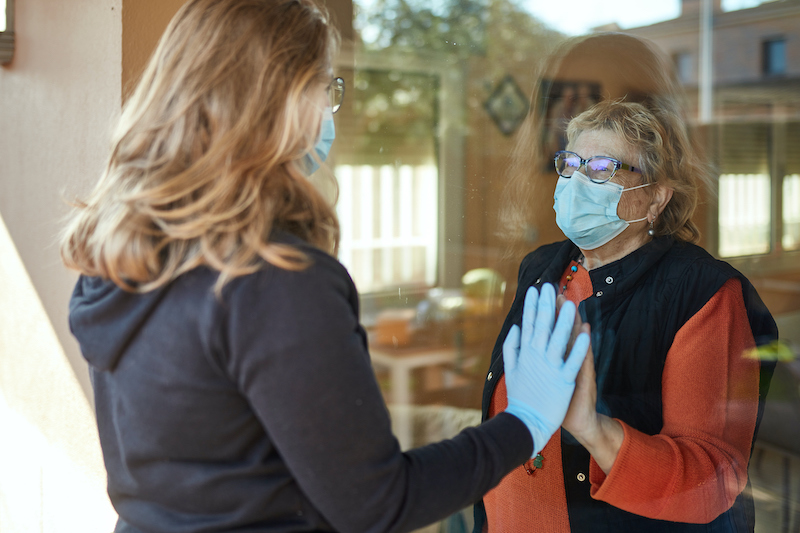
Pandemic fatigue in seniors can cause stress and anxiety.
It’s been over six months since the COVID-19 pandemic began. The restrictions that have been put in place to emphasize safety can begin to wear on us all, and while there is a natural tendency to want to “return to normal,” there’s a new concern: pandemic fatigue in seniors.
Pandemic fatigue stems from trying to control the myriad of overwhelming emotions we’ve been going through, such as anxiousness, fear, loneliness, and despair. It is fatiguing and draining, and may display as:
- Issues with getting enough sleep and/or eating appropriately
- Difficulty with focusing
- Retreating from those we worry about
- Becoming more argumentative or having a “short fuse”
- Feelings of anxiety, edginess, and diminished motivation
- Struggling with racing thoughts
The balance between maintaining the physical safety and health we achieve by self-isolating and the emotional health we achieve through socialization and engaging in meaningful activities isn’t easy to navigate. We have provided some tips to help both yourself and the older adults you love:
- Accept and acknowledge your emotions. A number of emotions are completely normal in a period of time that feels anything but normal. It can be helpful to name how you’re feeling – even writing it down. Then attempt to refocus your thoughts on techniques to help. As an example, if you are feeling out of control, direct your energy toward things that you can actually control.
- Improve your inner dialogue. It’s natural to wrestle with a number of negative “what if” scenarios, which bring about increased anxiety. Try integrating a positive slant to your thoughts; for instance, as opposed to thinking, “What if I come down with COVID-19?” tell yourself, “I have been doing everything I can to protect myself and remain safe.”
- Stay connected. While social distancing and staying away from each other has become the new normal, it is important to keep up social connections in ways that are safe: phone calls, emailing and chatting on social media, writing letters, and making use of technology for virtual get-togethers, classes, religious services, etc.
- Turn off the news. It’s important to make sure you’re updated on the current recommendations, guidelines, and status of the virus, yet it is also easy to very quickly become overwhelmed with too much information. Attempt to limit your news watching to no more than an hour each day, and then make sure the source you’re gaining information from is trustworthy.
- Take proper care of yourself. Create a routine that includes at the very least seven hours of sleep per night, half an hour of exercise each day, and a balanced and healthy diet. You’ll be aiding both your emotional state and your immune system by simply making good lifestyle choices.
Live Free Home Health Care is always available to partner with you in providing trusted, dependable senior home care. Our compassionate care team helps senior loved ones optimize emotional, physical, and social wellbeing. Whether the need is for just a few hours every week of respite care to allow family caregivers to rest and recharge, or as much time as needed, up through and including full-time care, call us at 603-217-0149 to learn more about our home care specialists in Concord, NH or the surrounding areas.
